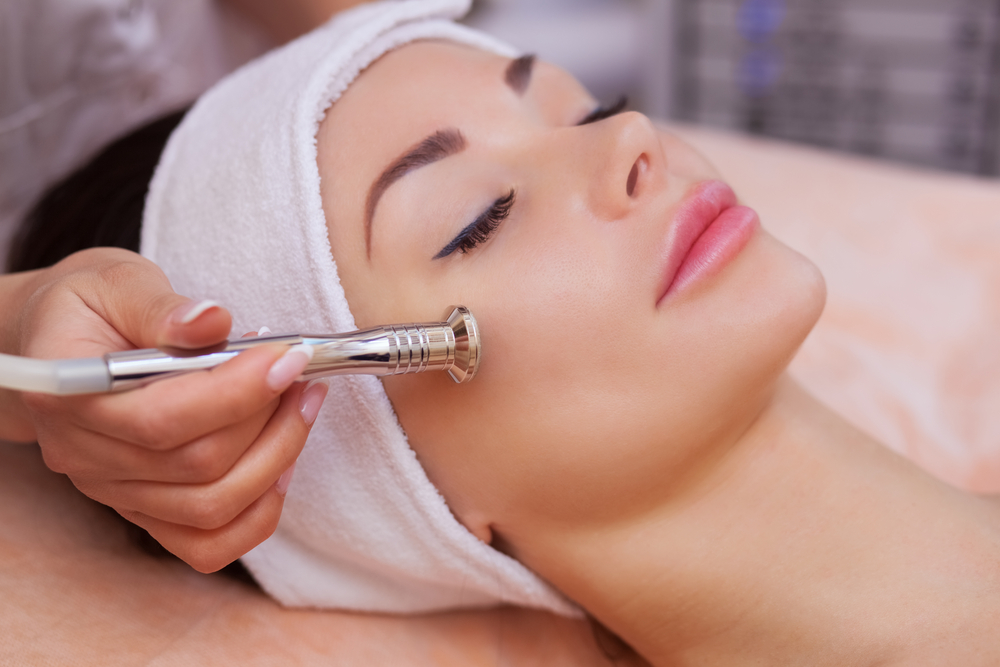
Hyperpigmentation is when patches of skin become darker than your normal tone, due to excess melanin production. For those with this common skin condition, here’s a guide on what to expect, hyperpigmentation treatment options near Boston for different skin types and how to plan your approach.
What Causes Hyperpigmentation?
Hyperpigmentation can occur from any condition that increases melanin production. Common causes include acne scars, sun damage, and hormonal shifts.
Different types of hyperpigmentation show up differently such as by flat spots or darker patches. Knowing the cause can help you choose the right treatment.
Types of Hyperpigmentation Treatment Options Near Boston
When it comes to hyperpigmentation treatments near Boston, there are a lot of options that can get the job done. Below, we discuss some of the best options.
Over-the-Counter Acids & Retinoids
The first line of treatment for many people is topical acids and retinoids. These work by gently exfoliating the skin’s outer layer so newer, more evenly pigmented cells come to the surface.
Common OTC acids include alpha hydroxy acids, azelaic acid, kojic acid, and salicylic acid. Vitamin C is also popular for fading spots.
Retinoids derived from vitamin A penetrate a bit deeper, helping with both current spots and preventing new ones. Over-the-counter retinoids exist, but prescription forms like tretinoin tend to deliver stronger results.
Chemical Peels, Microdermabrasion & Dermabrasion
Chemical peels are available in medical offices and are more potent but come with increased risk of side effects, such as temporary redness or irritation.
Microdermabrasion is an outpatient procedure where small abrasive tools gently remove the uppermost skin layer. It works well for surface pigmentation and offers faster recovery time.
Dermabrasion is deeper, affecting the upper part of the dermis, and may be chosen for more stubborn pigmentation, scarring, or texture concerns, but with higher risk and more recovery.
Laser, IPL & Light-Based Therapies
Light-based treatments are powerful options in the dermatologist’s toolkit. There are laser peels, ablative and non-ablative, and IPL, or Intense Pulsed Light therapy.
Ablative lasers are stronger, removing thin layers of skin; non-ablative lasers heat deeper skin layers to stimulate collagen and fade dark patches without removing large surface layers. IPL uses broad spectrum light to target pigmentation and help with tone and discoloration.
Matching Treatment to Skin Tone
Skin tone matters a lot in selecting treatment. Fair skin tends to respond well to many therapies, including lasers and peels, but may be more sensitive. Darker skin tones need more cautious treatment, such as lower-intensity lasers or milder acids, to reduce the risk of worsening pigmentation.
Medium and darker skin tones can benefit from acids, lightening creams, microdermabrasion, and gentle peels.
Role of Sun Protection & Lightening Creams
One of the most important parts of any hyperpigmentation plan is protecting your skin from more sun damage. Daily sunscreen (SPF 30 or higher), even on cloudy days, is essential.
Lightening creams (OTC or prescription) with ingredients such as niacinamide, licorice, or vitamin C help over time, though they act more slowly than in-office procedures.
What to Expect: Timeline & Side Effects
Improvement depends on treatment type. Topical acids and OTC products typically take several weeks to months. Peels, lasers, or IPL may show faster changes but sometimes require several sessions spaced weeks apart.
After aggressive treatments, temporary redness, peeling, sensitivity, or even changes in pigmentation can occur, especially if skin isn’t protected from the sun or treatments are too intense.
What’s Next? Select One of the Best Hyperpigmentation Treatment Options Near Boston
If hyperpigmentation is impacting your confidence or skin tone in Boston or the surrounding area, don’t wait. Schedule a consultation with a board-certified dermatologist who can evaluate your skin type, causes of pigmentation, and build a safe, effective treatment plan tailored to you.
With the right combination of protection, topical care, and possibly in-office procedures, you can achieve clearer, more even skin.
Call our office at (617) 250-0257 to speak with a member of our team or book an appointment online now!


